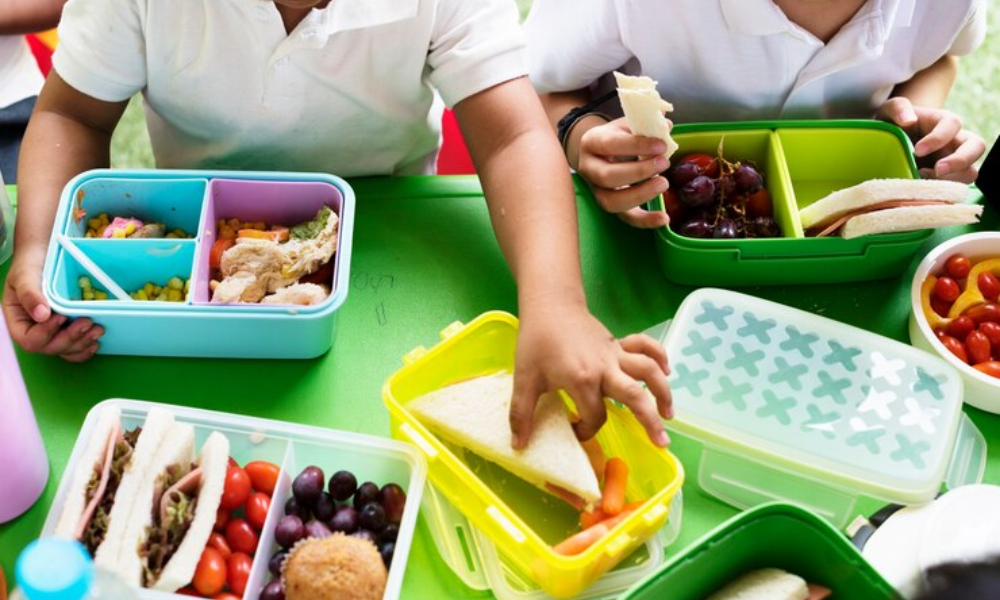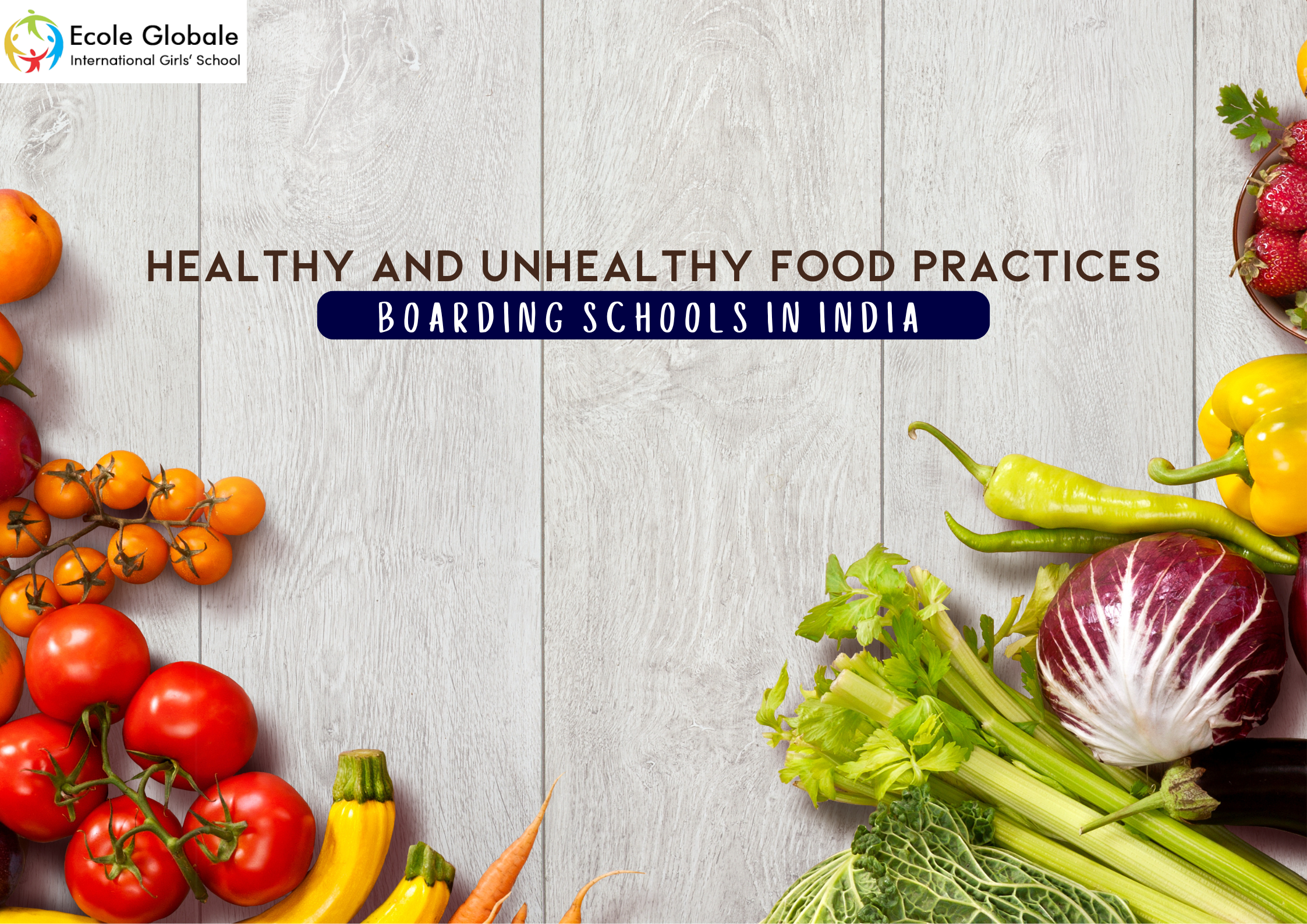Boarding schools in India have come a long way in recognizing the critical role that nutrition plays in the physical, mental, and emotional development of students.
Providing healthy and delicious food options is a priority for many institutions, ensuring students thrive academically and personally.
However, understanding the contrast between healthy and unhealthy food practices within these schools is equally important to create awareness and drive positive changes.
The Importance of Food in Boarding Schools

Food is more than just sustenance; it directly impacts students’ overall well-being. Healthy eating habits contribute to:
- Improved Academic Performance: Nutritious meals fuel the brain, enabling better concentration and cognitive function.
- Enhanced Physical Growth: A balanced diet supports proper growth, immunity, and energy levels.
- Mental and Emotional Stability: Certain foods, like those rich in omega-3 fatty acids and vitamins, help regulate mood and reduce stress.
Yet, unhealthy food practices can have the opposite effect, leading to health issues, lack of focus, and low energy levels. This contrast underscores the importance of promoting healthy food habits while eliminating unhealthy ones.
What Defines Healthy and Unhealthy Food?

Healthy Food:
- Nutrient-Dense: Rich in essential nutrients like vitamins, minerals, and proteins.
- Fresh and Natural: Includes fruits, vegetables, whole grains, and lean proteins.
- Balanced: Offers an appropriate mix of macronutrients (carbohydrates, proteins, fats) and micronutrients.
Unhealthy Food:
- High in Processed Ingredients: Often contains excessive sugar, salt, and unhealthy fats.
- Low Nutritional Value: Provides empty calories with little to no benefit.
- Addictive in Nature: Junk food items like chips, sugary drinks, and fried snacks are hard to resist but offer no long-term value.
Features of Healthy Food Practices in Indian Boarding Schools

- Balanced Meal Plans:
- Boarding schools focus on including all food groups in the right proportions:
- Proteins: Lentils, eggs, and paneer.
- Whole grains: Rice, wheat, and millets.
- Fresh produce: Seasonal fruits and vegetables.
- Healthy fats: Nuts, seeds, and olive or mustard oil.
- Boarding schools focus on including all food groups in the right proportions:
- Hygienic Cooking Methods:
- Meals are prepared in clean, modern kitchens with stringent hygiene standards.
- Steaming, grilling, and baking are preferred over deep-frying to preserve nutrients.
- Personalized Nutrition:
- Catering to dietary preferences and restrictions such as vegetarian, vegan, gluten-free, or allergy-specific diets ensures inclusivity.
- Educational Efforts:
- Workshops and sessions teach students the benefits of healthy eating versus the risks of unhealthy food habits.
Common Unhealthy Food Practices in Boarding Schools

Despite efforts to maintain high standards, some schools struggle with unhealthy food practices, including:
- Overreliance on Processed Snacks: Instant noodles, chips, and sugary drinks often find their way into canteens.
- Irregular Meal Timing: Late-night snacking or skipping meals can disrupt students’ metabolism.
- Poor Portion Control: Overeating or undereating due to unmonitored portion sizes.
- Limited Fresh Produce: Some schools fail to include adequate amounts of fresh fruits and vegetables in meals.
Impact of Healthy and Unhealthy Food Practices

Healthy Food Practices
- Boosts Energy Levels: Students feel more energetic and active throughout the day.
- Strengthens Immunity: Nutrient-rich meals help ward off illnesses.
- Improves Focus and Memory: Balanced meals enhance cognitive abilities, leading to better academic performance.
Unhealthy Food Practices
- Health Problems: Poor eating habits can lead to obesity, digestive issues, and other health complications.
- Decreased Productivity: High sugar or fat content in meals can cause energy crashes, affecting focus and performance.
- Negative Mood Swings: Junk food consumption can lead to irritability and stress.
Innovations in Boarding School Food Practices
- Farm-to-Table Approach:
- Many schools grow their own organic fruits and vegetables to ensure fresh and pesticide-free meals.
- Nutritionist-Designed Menus:
- Professional nutritionists design meal plans to provide balanced, tasty, and appealing options.
- Incorporating Global Food Trends:
- Introducing superfoods like quinoa, chia seeds, and avocados.
- Offering plant-based or vegan alternatives.
- Food Committees and Feedback Systems:
- Regular feedback from students helps refine menus and incorporate their preferences.
Promoting Awareness About Healthy and Unhealthy Food

Steps Boarding Schools Can Take:
- Educational Campaigns:
- Organize workshops and classes on nutrition, meal planning, and understanding food labels.
- Encouraging Healthy Snacking:
- Replace junk food in canteens with options like fruits, nuts, and yogurt.
- Parental Involvement:
- Encourage parents to reinforce healthy eating habits during holidays.
- Reward Systems:
- Recognize students who adopt and advocate for healthy food habits.
Conclusion
The stark contrast between healthy and unhealthy food practices highlights the need for Indian boarding schools to prioritize nutritious, delicious, and balanced meals.
By fostering awareness and adopting innovative approaches, these schools can ensure students enjoy the benefits of healthy eating while avoiding the pitfalls of unhealthy food habits.
Nutrition is not just a necessity; it is the foundation of holistic development, paving the way for a healthier and brighter future for students.









